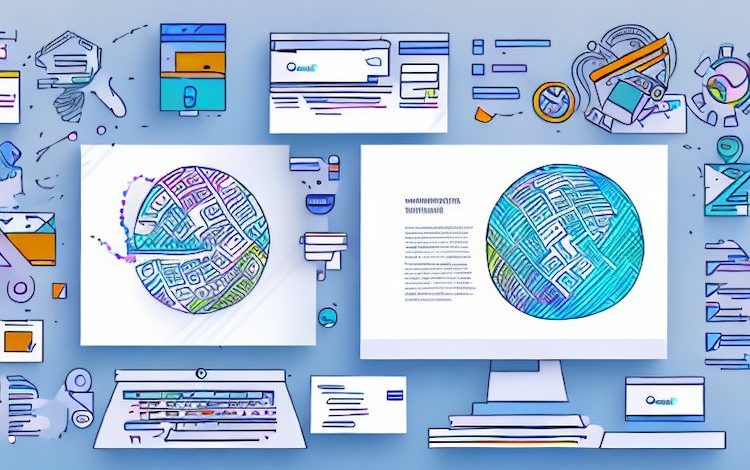What Tools and Technologies Make Website Localization Easier?

As the internet becomes an increasingly global space, businesses must adapt their websites to cater to diverse languages and cultures. Website localization is an essential step in ensuring that your online presence is accessible and engaging for a worldwide audience. In this article, we will explore the tools and technologies available to make the process of website localization easier and more efficient.
Understanding Website Localization
Before diving into the tools and technologies that aid in website localization, it’s crucial to have a clear understanding of the concept and its importance in today’s global market.
In simple terms, website localization refers to the process of adapting a website to meet the cultural and linguistic needs of a specific target audience. This involves more than just translating text into different languages. It requires a deep understanding of the local customs, preferences, and behaviors of the target audience, and adapting the website’s design, content, and functionality accordingly.
For instance, a website that targets a Japanese audience would need to use Japanese characters, display prices in yen, and use the appropriate date and time formats. It would also need to consider cultural nuances, such as the importance of honorifics and the use of specific colors that have different meanings in Japanese culture.
What is Website Localization?
Website localization is the practice of adapting a website’s content, design, and functionality to accommodate different languages, cultures, and user preferences in various regions. This not only involves translating text, but also modifying images, currency, date and time formats, and other culturally-sensitive elements to provide a seamless user experience for the target audience.
Localization is not just about making a website usable for people who speak different languages. It’s about creating a website that feels familiar and comfortable to the target audience, which in turn builds trust and loyalty. By investing in website localization, businesses can demonstrate their commitment to serving the needs of their customers, regardless of where they are in the world.
The Importance of Localization in Today’s Global Market
In a world where businesses are competing for attention in an overcrowded digital space, the importance of localization cannot be overstated. Localization not only helps businesses reach a broader audience but also demonstrates cultural sensitivity and respect, fostering trust between the brand and its customers. Furthermore, localized websites typically rank higher in search results for users in the targeted region, making it an essential component of Online Marketing and SEO strategies.
When done correctly, website localization can help businesses tap into new markets and increase their revenue streams. It can also help them stand out from their competitors by providing a superior user experience that caters to the unique needs and preferences of their target audience.
However, it’s important to note that localization is not a one-size-fits-all solution. Each target audience has its own unique set of needs and preferences, and businesses must invest time and resources into understanding these nuances to create an effective localized website. This requires collaboration between localization experts, content creators, designers, and developers to create a website that is both functional and culturally appropriate.
In conclusion, website localization is an essential component of any global business strategy. By investing in localization, businesses can demonstrate their commitment to serving the needs of their customers and create a website that feels familiar and comfortable to their target audience. With the right tools and expertise, businesses can unlock new markets and increase their revenue streams, while providing a superior user experience that sets them apart from their competitors.
Key Factors to Consider for Effective Website Localization
To achieve successful website localization, there are several key factors to consider before selecting the right localization management software. These include language and cultural adaptation, design and layout, and SEO and online marketing strategies.
Language and Cultural Adaptation
Accurate translation and localization of content require an in-depth understanding of the target language and culture. This involves not only translating text, but also ensuring that idiomatic expressions, humor, and cultural references are appropriately adapted for the target audience.
Hiring professional translators and localization experts familiar with the subtleties of the target language and culture is vital to prevent misunderstandings and ensure that content remains engaging and relevant.
Design and Layout Considerations
Website design and layout must be suitable for the target audience’s cultural preferences and sensibilities. This may include using culturally appropriate colors, images, and icons or accounting for text direction and flow, such as right-to-left languages like Arabic and Hebrew.
Responsive design is also crucial to accommodate a range of devices and screen sizes, ensuring that the website remains functional and visually appealing for users in different regions.
SEO and Online Marketing Strategies
Optimizing your localized website for search engines is essential to reach your target audience effectively. This includes keyword research and optimization tailored to the target language and region, as well as ensuring that meta tags and URLs are correctly localized.
Additionally, leveraging local social media platforms and marketing channels is vital for enhancing the visibility of your localized website and engaging with potential customers in the region.
Translation Management Systems (TMS)
Translation Management Systems (TMS) are software solutions designed to streamline the process of translating and localizing content. They offer a range of features that make website localization more efficient and accurate.
Features of a Good TMS
A robust TMS should include functionalities such as translation memory, terminology management, workflow automation, quality assurance, and integration with third-party tools and applications. These features help to enhance the accuracy and consistency of translations, reduce the time and effort involved in the localization process, and enable seamless collaboration between team members.
Top TMS Solutions for Website Localization
Some popular TMS solutions for website localization include Smartling, Memsource, Transifex, and XTM International. These platforms offer a range of advanced features and integrations to facilitate a smooth and efficient localization process.
Content Management Systems (CMS) with Localization Support
Content Management Systems (CMS) that provide localization support enable businesses to create, manage, and publish localized content more easily. Several leading CMS platforms offer built-in or plugin-supported localization features.
WordPress and Its Localization Plugins
WordPress is one of the most popular and widely-used CMS platforms globally. Many localization plugins are available to facilitate the translation and localization of WordPress websites. Some popular options include WPML, Polylang, and TranslatePress, which offer user-friendly interfaces and advanced features to support efficient multilingual content management.
Drupal and Its Multilingual Capabilities
Drupal stands out for its built-in multilingual features, enabling users to create and manage localized content without requiring additional extensions. Drupal offers a range of core modules, such as Language, Locale, and Content Translation, that enable translation and localization of content, interface, and system configurations.
Joomla and Its Translation Extensions
Joomla is another widely-used CMS platform that supports website localization through various translation extensions. Some popular Joomla translation extensions include Falang, JoomFish, and GTranslate, which simplify the process of managing translated content and provide compatibility with third-party translation services.
Machine Translation (MT) Tools
Machine Translation (MT) tools use artificial intelligence (AI) to automate the translation of content, resulting in faster output and reduced costs. While MT may not always provide the same level of accuracy and nuance as professional human translators, advancements in AI technology have significantly improved the quality of machine-generated translations over time.
Google Translate API
The Google Translate API is a powerful MT tool that allows developers to integrate Google’s advanced neural machine translation capabilities into their applications, websites, or services. With support for over 100 languages, the Google Translate API provides quick translation results and can be integrated with other localization tools and platforms for a more streamlined process.
Microsoft Translator
Microsoft Translator is another popular MT option that offers support for over 60 languages. With its robust API, Microsoft Translator enables integration with various applications, websites, or services, and is known for its accuracy and customizable features that help enhance translation quality.
DeepL Translator
DeepL Translator is a highly-regarded MT tool, known for producing translations that closely resemble human-produced text. Supporting 24 languages, DeepL’s neural networks provide fast and accurate translations, making it an attractive option for businesses seeking to streamline the localization process.
In conclusion, various tools and technologies make website localization easier and more efficient, allowing businesses to effectively reach and engage with a global audience. By leveraging Translation Management Systems, Content Management Systems, and Machine Translation tools, businesses can streamline their localization process, enhance translation quality, and ultimately achieve greater success in today’s competitive global market.
Read Next: Warzone 2.0 Lost Connection to Server: 6 Ways to Fix



